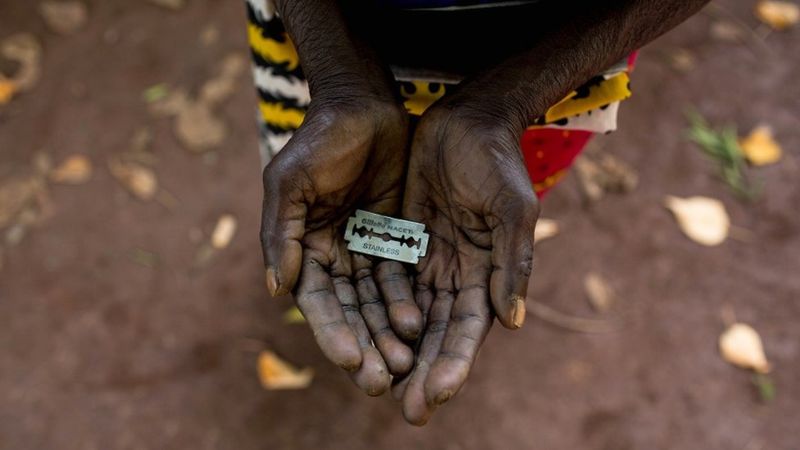Reports of the 2800 young girls in Kenya who have been forced to undergo female genital mutilation over the last few weeks serve as another reminder of the prevalence of this horrifying practice. Once again, the discussion turns to what can be done to save more girls, and raise awareness of the ongoing fight.
Local activists have detailed members of the Kuria community, who have flagrantly defied the Kenyan government. Almost every day since late September, girls who have undergone female genital mutilation (FGM) have been paraded through their region’s main urban centres. They have been showered with gifts, including cash, all in an attempt to encourage other young girls to pursue the same procedure.
The question now is what can be done to combat this rise in cases? Awareness of the dangers of this practice must be raised within the affected communities, as education is the primary way of challenging traditional narratives. Pressure should also be put on the government to clamp down harder on those flouting the law in this way. Charities abroad do great work in deconstructing this tradition which is so entrenched in local culture, but evidently not enough is being done if we want to see an end to FGM in Kenya.
However, the situation there is not an isolated problem. Indeed, a 2020 report by UNICEF states that Kenya is doing better than other nations in Eastern and Southern Africa in the progress towards the eradication of FGM. Moreover, this is not a remote issue confined to Africa, and we cannot be seen to be lecturing other countries whilst refusing to adequately recognise FGM cases in the UK.
Britain is believed to contain thousands of FGM survivors. However, the biggest concern when collecting data on this issue is that it is very difficult to know how many procedures are actually being carried out in Britain. There are certainly many women living in the UK who have undergone FGM abroad, but figures do not accurately portray the numbers of girls living in the UK whose procedures take place here.
It is hard for us to enforce real change abroad, so we should instead focus on what we can control. A first step would be to strengthen relations with authorities in Kenya and other African nations in order to uncover cases of British citizens being taken over to undergo the procedure.
On a local level, Leeds is home to one of eight national FGM support clinics. In fact, Leeds has been the pilot area for these clinics, supported by the local mental health clinic, Touchstone. In 2017 Leeds City Council set up a new FGM strategic multi-agency group partnership, which brought together health, education, West Yorkshire Police and third sector agencies, in order to tackle female genital mutilation in the city. Authorities clearly see this is a significant issue in Leeds, and are dealing with it proportionately.
We must also see a renewed commitment by our security services in the UK prosecuting and convicting those who carry it out, both here and abroad. At the beginning of October the Crown Prosecution Service tweeted about hate crime prosecutions, including religious-based discrimination. Is the CPS really in a position to brag about prosecuting hate crimes when there has only been one conviction of FGM in the UK since it was made illegal in 1985?
It should be noted that reluctance to address this issue can be traced back to a desire to not be accused of religious discrimination. Whilst FGM is not endorsed by Islam, religious and cultural narratives are commonly deployed to justify it. As seen with other forms of child abuse, members of the social services may not speak out due to this fear. The Rotherham child sexual exploitation scandal should serve as a warning as to the dangers of this, and more reassurance that concerns about this abhorrent practice will be given the attention they deserve must be provided.
Perhaps the most notable detail of the recent events in Kenya has been the lack of coverage in British mainstream media. If we want to see an end to FGM practices, at home and abroad, awareness of its widespread nature must be a primary concern.
Emily Bell
Image source: BBC News

